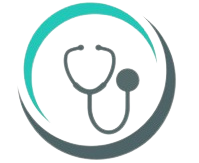Are you suffering from bacterial infections such as pneumonia, cholera, TB, etc.? Do you experience severe signs and symptoms? Immediately call your doctor to get the proper treatment on time. ExpressTeleDoc treats and manages all types of bacterial infections and diseases. Our doctors are well-experienced in diagnosing the condition to give you the best medicine.
What are Bacteria and Bacterial infections?
Bacteria are ubiquitous, primarily free-living, single-celled microorganisms. They can survive on their own, either inside or outside the body of living organisms. Mostly, bacteria are not harmful. They live friendly inside our body and help us in different processes, e.g., in the gut for food digestion. However, there are a lot of harmful bacteria present in the environment that cause bacterial infections.
Bacterial infections are defined as the overgrowth of a harmful strain of bacteria inside our bodies. Bacteria can infect various parts/organs of our body, including skin, lungs, bowel, throat, etc.
Following are some examples of bacterial infections. Includes,
- Urinary tract infection
- Tuberculosis
- Whooping cough
- Strep throat
- Gastritis
- Food poisoning
- Bacterial vaginosis, etc.
Types of bacterial infections:
- Bacterial skin infections
- Foodborne bacterial infections
- Sexually transmitted bacterial infections
Symptoms of bacterial infections:
Typically, signs and symptoms depend on the nature of the bacteria and the location of the infection. Some general symptoms are mentioned below. Includes,
- Fever
- Vomiting or nausea
- Feeling tired
- Chest pain
- Cough, etc.
Causes:
As the name shows, bacterial infections are caused by several bacteria. There are various harmful bacteria present in the environment. These bacteria get into the body either through the skin (wounds or cuts) or airways (in aerosols or droplets).
When should I visit a doctor?
If signs and symptoms worsen and persist for a long time, immediately visit a healthcare professional. When you experience the symptoms mentioned below, go to a doctor as soon as possible.
- Persistent and high fever
- Trouble in breathing
- Frequent and severe coughing
- Intense stomach pain
- Severe headache
- Severe vomiting
- Redness or swelling on the skin, etc.
Treatment of bacterial infections:
Typically, your doctor will prescribe you antibiotics. These antibiotics can kill the bacteria (bactericidal) or inhibit their growth (bacteriostatic). Your doctor will select the antibiotic according to the type of bacterial infection.
